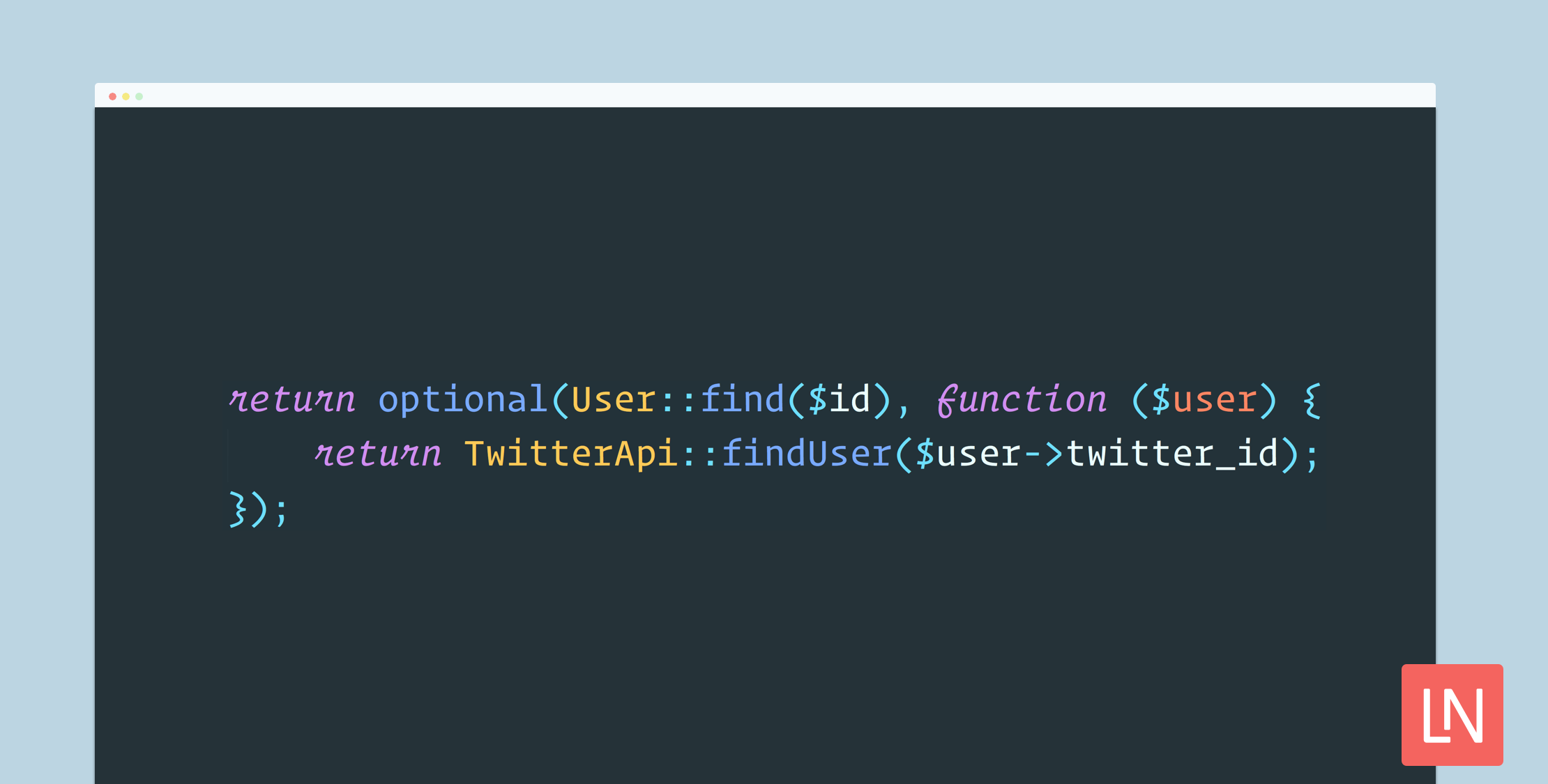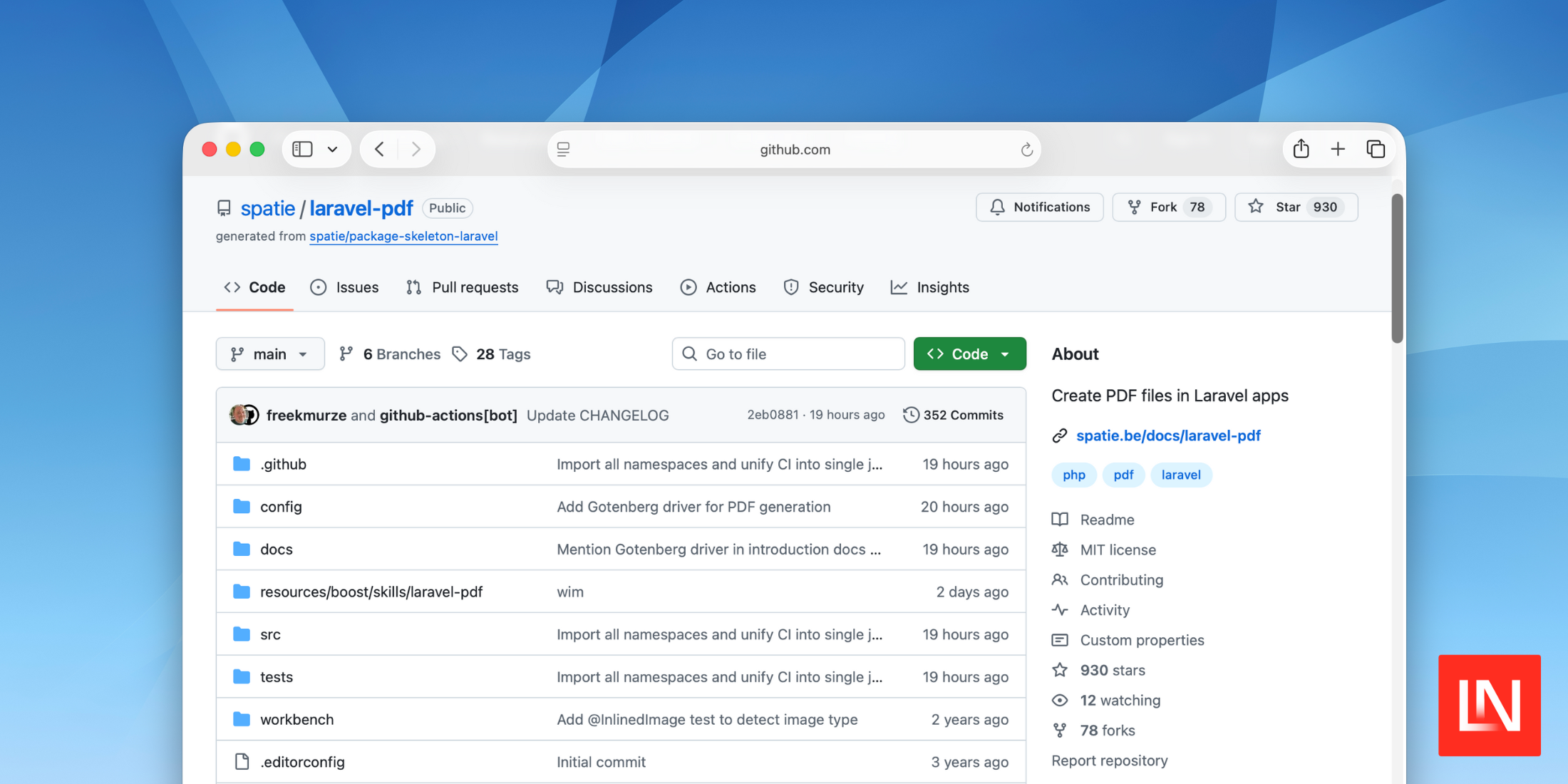The Laravel Optional class and accompanying optional helper were introduced in Laravel 5.5. This class is useful to avoid those pesky Trying to get property of non-object errors in your code.
Joseph Sibler submitted an improvement to the Laravel optional helper that we covered in Laravel 5.6.13 which now allows a closure that is only called when the object is not null:
???? The "optional" helper in @laravelphp is great for safely calling a method on an object that could be null. But what if the method is not on the actual object itself?
Well now you can pass in a closure to "optional", and it'll only call it if the given object is not null ???? pic.twitter.com/0RIbUffuOY
— Joseph Silber (@joseph_silber) April 5, 2018
His example demonstrates how the usage of the optional() helper differs slightly for use-cases where you want data from another source, but only in the case of a non-null value:
return optional(User::find($id), function ($user) { return TwitterApi::findUser($user->twitter_id);});Optional vs Null Coalesce
We recently wrote about updating your Blade templates to the PHP7 null coalesce operator in preparation for Laravel 5.7, but clearly the optional() still has a place, especially for more advanced needs where you can cleanly only access the data you desire if the value isn’t null.
So when do you need the optional() or the null coalesce operator?
If you only care about returning null when a value doesn’t exist, optional is not redundant:
// null coalescereturn $user->profile->twitter_id ?? null; // optionalreturn optional($user->profile)->twitter_id;The two code examples accomplish the same thing. However, you must explicitly return null and use null coalesce to avoid an Undefined property notice, and the second example shows intent that the value is optionally available.
If you want a default value, null coalesce is a better choice:
return $user->profile->nickname ?? randomNickname();The goal of the optional is to return null and avoid non-object errors in the process, without verbose code to check the object.
Learn More
We wrote about Five Laravel Helpers to Make Your Life Easier which includes the optional helper, and other useful helpers that might be helpful (pun intended).
If you want inspiration from other sources about the concept of optional, an Optional class exists in Java (introduced in Java 8), which can be used to avoid null pointer exceptions. The Java Optional API has some interesting methods you might want to explore.











